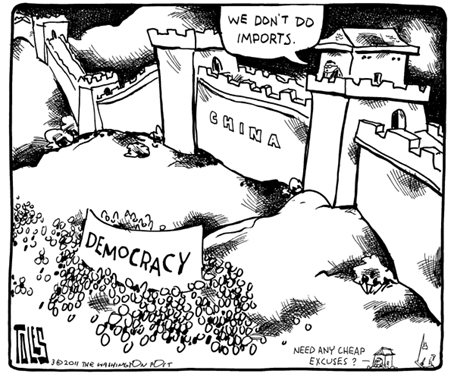China remains an authoritarian state, one that systematically curbs fundamental rights, including freedom of expression, association, assembly, and religion, when their exercise is perceived to threaten one-party rule.
Rather than embrace lawyers, writers, and whistleblowers as allies in an effort to deal effectively with rising social unrest, the government remains hostile to criticism. The government targets activists and their family members for harassment, arbitrary detention, legally baseless imprisonment, torture, and denial of access to adequate medical treatment.
Pervasive ethnic discrimination, severe religious repression, and increasing cultural suppression justified by the government in the name of the “fight against separatism, religious extremism, and terrorism” continue to fuel rising tensions in the Xinjiang Uighur Autonomous Region (XUAR).
China’s mass rehousing and relocation policy has radically changed Tibetans’ way of life and livelihoods, in some cases impoverishing them or making them dependent on state subsidies. Since 2006, over 2 million Tibetans, both farmers and herders, have been involuntarily “rehoused”—through government-ordered renovation or construction of new houses—in the TAR; hundreds of thousands of nomadic herders in the eastern part of the Tibetan plateau have been relocated or settled in “New Socialist Villages.”
Although media has greater freedom in Hong Kong than elsewhere in China, journalists and media owners, particularly those critical of Beijing, came under increasing pressure in 2014. In February, a prominent editor, Kevin Lau, was stabbed by unidentified thugs; in July, HouseNews, a popular independent news website known for supporting democracy in Hong Kong, was shuttered by its founder, who cited fear of political retaliation from China.
The Chinese government targeted the Internet and the press with further restrictions in 2014. All media are already subject to pervasive control and censorship. The government maintains a nationwide Internet firewall exclude politically unacceptable information.
Although the constitution guarantees freedom of religion, the government restricts religious practices to officially approved mosques, churches, temples, and monasteries organized by five officially recognized religious organizations; any religious activity not considered by the state to be “normal” is prohibited. Between late 2013 and early July, the government removed 150 crosses from churches in Zhejiang Province, which is considered to be a centre of Christianity. The government classifies many religious groups outside of its control as “evil cults.” Falun Gong, a meditation-focused spiritual group banned since July 1999, continues to suffer state persecution.
Women’s reproductive rights and access to reproductive health remain severely curtailed under China’s population planning regulations. That policy includes the use of legal and other coercive measures, such as administrative sanctions, fines, and coercive measures, including forced insertion of intrauterine devices and forced abortion, to control reproductive choices.
Although China ratified the Convention on the Rights of Persons with Disabilities (CRPD) in June 2008, persons with disabilities face a range of barriers, including lack of access to education and forced institutionalization (including as a form of punishment). According to Chinese Human Rights Defenders (CHRD), central government rules require local officials to meet a quota of institutionalizing two out of every 1,000 people who allegedly have “serious mental illnesses.”
Homosexuality was decriminalized in 1997, but was remained classified as a mental illness until 2001. To date there is no law protecting people from discrimination on the basis of sexual orientation or gender identity. There is no legal recognition of same-sex partnership. LGBT groups continue to document the phenomenon of “conversion therapy,” in which clinics offer to “cure” homosexuality.
China also continued to pressure governments to forcibly return Chinese asylum seekers and to deny visas to individuals it dislikes, such as the Dalai Lama.
Full report @ https://www.hrw.org/world-report/2015/country-chapters/china-and-tibet

 RSS Feed
RSS Feed
